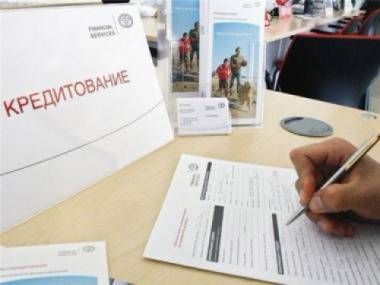
Kazakh President Nursultan Nazarbayev warned on October 11 that consumer lending is posing a new threat to the country's banking sector, describing rising retail borrowing as a "bomb".
Speaking at a government session, Nazarbayev criticised the recent increase in consumer loans. He said that Kairat Kelimbetov, whose sudden appointment at the head of the National Bank of Kazakhstan (NBK) in early October surprised many, has been charged with averting potential problems arising from non-performing loans.
"Kairat Kelimbetov, the newly appointed central bank governor, has been instructed to look into the situation ... payback of these consumer loans is questionable. They are a new bomb," Nazarbayev said according to Newskaz. Kelimbetov's predecessor Grigory Marchenko nationalized two of Kazakhstan's largest banks - BTA and Alliance – shortly after being appointed in 2009.
As of August 1, 2013, non-performing loans (NPL) totaled $24.2bn - or 29.9% of Kazakh banks' total loan portfolio - according to Visor Capital. The figure is skewed by BTA however, which has $8.2bn worth of bad loans, equaling 81% of its portfolio. In September, the NBK set a ceiling for NPLs of 20% of total loans starting on 2014, falling to 15% in 2015.
"Household lending remained the most actively expanding segment, with healthy double-digit growth rates," according to VTB Capital. In early 2013, household lending was growing at more than 50% year-on-year, although the pace of growth slowed slightly in June and July.
International rating agency Moody’s changed outlook on Kazakhstan's Baa2 rating from stable to positive on August 16. However, it also warned "high growth rates in loans to households (27% year-over-year in June), which are still small in absolute size, pose risks to asset quality in the future."
Bubble
Any rise in risk for the banking sector is a sensitive issue. Kazakhstan is still struggling to deal with the aftermath of a pre-crisis bubble in the banking and real estate sectors.
In the mid 2000s, a speculative bubble in the real estate sector built up in Almaty, with prices briefly exceeded those in London. In that era of cheap credit, the country's banks borrowed heavily on international capital markets to finance the boom. The bubble burst abruptly with the onset of the subprime crisis in the US.
That saw the near collapse of major lenders, including the country's biggest: BTA, as well as Alliance. Both banks were nationalized in February 2009 to prevent their collapse, and BTA has been through more than one expensive restructuring in a bid to save it. NPLs at Alliance are reported to be running at 47% of its loan portfolio, and speculation has been growing that it may be headed for its second restructuring in three years.
Marchenko warned in August that the fund established by Astana to mop up distressed assets was moving too slowly to solve the problem. Disagreement over the valuation of troubled assets, in combination with laws governing banking secrecy, is slowing the process, he claimed.
Alongside other smaller banks, both BTA and Alliance remain in state hands. However, Nazarbayev has ordered Samruk-Kazyna, Kazakhstan's sovereign wealth fund and state holding company, to offload its stakes in BTA, Alliance, TemirBank and Kazkommertsbank by the end of the year.
Samruk-Kazyna reported on October 10 that it has reached a preliminary agreement with Kazakh billionaire Bolat Utemuratov on the sale of Alliance Bank and Temirbank. The buyer is looking to merge the pair with ForteBank, in which he is the major shareholder.
 В Атырау -10
В Атырау -10